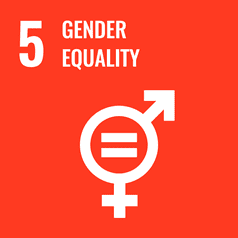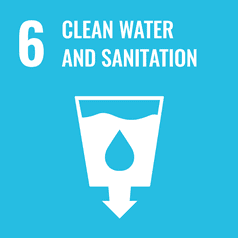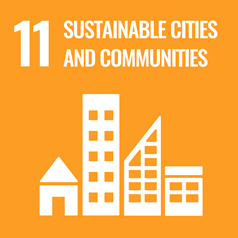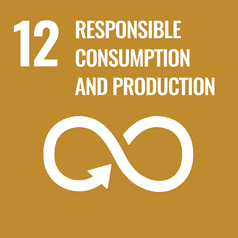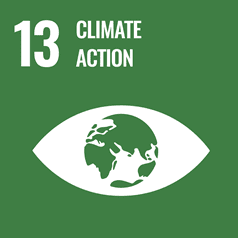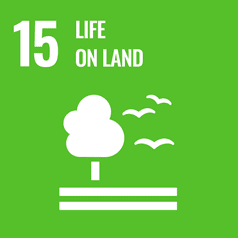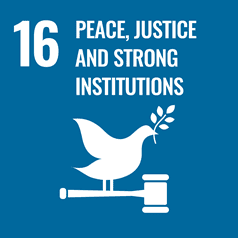Our
Vision
To be a world-leading university for our regions.
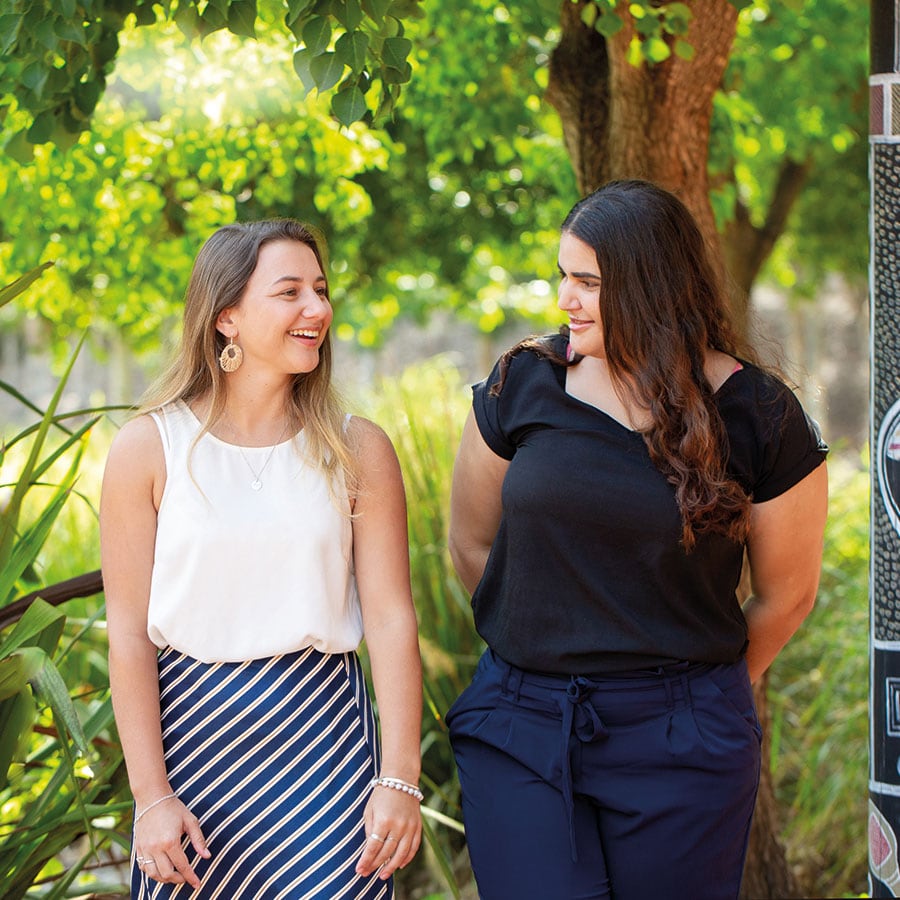 Student Maddy with staff member, Rhyann Roberts
Student Maddy with staff member, Rhyann Roberts
Our Purpose
To deliver an exceptional student experience, preparing graduates for life in an increasingly interconnected society.
To serve our regions by taking research that matters to the world and bringing our global expertise home.
Our Commitment
We will be a leading advocate and driving force for excellence and equity in higher education.
We will deliver an outstanding and inspiring student experience. We will ensure our students develop life and career skills that will make them competitive in the workforce, and are strongly supported in their physical and mental wellbeing.
We will bring the world to our regions, and take our regions to the world through relevant research solutions to local, national and global problems.
Welcome
A message from our
Chancellor and Vice-Chancellor
Welcome to Looking Ahead, the University of Newcastle Strategic Plan 2020-2025. Our vision is to be a world-leading university for our regions.
When we look ahead, we are motivated by the opportunities we see. We are driven by the challenges we need to solve. And we are stirred by the future we can imagine.
This strategic plan is our framework for creating that very future. A future where Australia's First Peoples are empowered and enjoy true equality. A future where anyone who has the drive and talent to succeed is given the opportunity to study. A future where our research benefits our local communities as well as our fellow global citizens. A future where our environment is safeguarded and at the heart of all of our big decisions.
We will create this future together. We are a University of our regions and for our regions. Indeed, in shaping this strategic plan, we have asked our students, our staff and our communities to tell us what is most important to them. And we've listened. With more than 4,500 contributions, at the heart of this plan is the voice of the people with whom we will share our future.
Over the coming five years, our University has much to do.
With an outstanding student experience clearly in our sights, we will build on our reputation for high-quality education and research in health and medicine, science and engineering, energy and the environment, business and law, and education and arts.
We will prepare our students for the rapidly changing world by giving them more opportunities for work experience before they graduate. And, we will introduce new measures to make sure each of our graduates is more healthy, resilient and community-minded when they leave our institution than when they arrived. Helping to develop these life-ready graduates will be at the core of our actions.
We will establish four Engagement Priorities to guide our research and education efforts. We will draw on the wisdom of our Indigenous communities and use the lessons we've learned through the success of entities like the Newcastle Institute for Energy and Resources (NIER) and the Hunter Medical Research Institute (HMRI) to address global challenges.
Knowing we have an important place in the Asia Pacific Region, we will pursue deeper and richer partnerships and engagements in this region, and as a global citizen we will proudly contribute to the United Nations Sustainable Development Goals (SDGs).
In doing all this, we will make sure our regions continue to benefit from having their own university. By reimagining our campuses, we will open the doors to let the community in. Together with our inspiring people, we will cultivate a thriving innovation and start-up culture and will bring global expertise and knowledge to drive the future of these communities.
There is much to do. We know this won't always be an easy journey, but we know it is the right one.
The spirit of looking to the future - of imagining and then realising possibilities - is embedded in the rich heritage of our University. Indeed, our motto 'I look ahead' has long embodied that forward-looking character and resolve.
We are excited to be Looking Ahead with you.

Our regions
Our Regions
We were established to serve the needs of the Hunter and Central Coast – a responsibility that is legislated in our University Act.
The Newcastle and Hunter Region has reinvented itself many times. With a strong Indigenous community, a rich industrial and resources history, and an emerging arts and digital culture, the region is one of the most representative of Australia and is a true microcosm of Australian society.
The Hunter is Australia's largest regional economy, generating more wealth on an annual basis than Tasmania, the Northern Territory or the ACT. We are home to a wide range of industries from health, education, advanced manufacturing, to tourism, agriculture, aquaculture and fisheries, mining and resources, power generation, viticulture and defence.
For more than 30 years, we have been serving our community on the Central Coast through our Ourimbah campus. The Central Coast region has experienced a dramatic transformation during this time. It is now the fastest growing region in NSW and recognised as a Significant Urban Area by the Australian Bureau of Statistics.
Affordable housing, commuter corridors to Sydney and Newcastle, and a diverse population have attracted government and industry investment to the Central Coast. Skilled workers are also making their way to the region with sector expertise in healthcare and social assistance, education and training, food manufacturing, tourism, logistics, agriculture and construction. The University will soon open the Central Coast Medical School and Research Institute in Gosford.
However, there are barriers to prosperity. Income inequality, a lack of housing affordability, unemployment, mental and physical illness and family violence continue to challenge policy makers and community workers in our regions. Participation rates in higher education are below the State average and youth unemployment is too high.
The University has a strong presence across regional NSW – in Orange, Tamworth, Muswellbrook, Port Macquarie, Coffs Harbour, Armidale, Taree and Moree. We're committed to serving NSW through training our future health and medical workforce, incubating and accelerating regional start-ups and engaging in regionally focused research.
Our communities are not only defined by where we have a physical presence. They are where our students come from, and are where many return home. They are where the industries with which we collaborate are based, and are where the benefits of our innovation are felt by communities.
In an increasingly digital and globalised world, the reach of our communities is ever growing. While we will always, first and foremost, be a University for the Hunter, Central Coast and broader NSW regions, our communities stretch to Sydney, the South Pacific, Singapore, throughout Asia and across the world.
Our journey
Our journey:
What we heard
From the outset, our journey to develop Looking Ahead was grounded in a desire to understand what our staff, students and communities want and need us to be.
As an anchoring institution in regional Australia, we have sought to align our priorities and direction with those of government, business and the community around us, from the local perspective through to a global view.
We reflected on our previous strategic plan - New Futures - identifying our strengths, celebrating our successes and ensuring that we roll forward key aspects of the plan into our new strategy.
We also considered where the pressures, challenges and opportunities may lie over the next decade for our University. In an increasingly connected and digital world, developments outside of higher education are becoming as important as those within, if not more so.
Consultation for Looking Ahead took several months, spanning all of our stakeholder groups, and included surveys, town hall forums, focus groups, targeted interviews, a discussion paper, community pop-ups, a presence at University events, and a feedback portal.
We had more than 4,500 unique interactions with our stakeholders. Those we consulted included staff, students, leaders in the business community, civic leaders, the not-for-profit sector, Indigenous organisations and members of the public, as well as members of our 150,000-strong global alumni community whose voices are represented across these stakeholder groups.
Our communities spoke, and we listened
Our students, both current and prospective, told us that while getting a job was a primary motivation for attending university, they were most concerned with our institution delivering action on climate change and being environmentally sustainable.
Our staff emphasised the importance of delivering a first-rate student experience both within courses but also across our physical and digital environments. They believe we should continue to be a strong, research-intensive university. They also want our organisation to be more risk-tolerant and innovative, to have a stronger culture of collaboration and performance, and to retain and grow our strong tradition in Indigenous education and engagement.
Our local communities said they are proud to have a university of our global standing in their regions. They want greater visibility of the positive contributions that we make. They want to have more reasons to come to our campuses and engage with our activities and events. Overwhelmingly, our communities expect us to be local, national and global leaders in climate change and environmental sustainability.
Our civic leaders consistently spoke of entrenched inequality or disadvantage within our regions. While the specific issues differed, they were united in their view that more work must be done to ensure all people in our communities have the opportunity to lead healthy, fulfilling and dignified lives. They want the University to be a catalyst for job creation and transformation, as well as help break cycles of intergenerational disadvantage.
Our Indigenous partners spoke of the long and deep history that their people have with the Hunter and Central Coast regions and, more recently, with the University of Newcastle. There is a strong desire for this deep connection to continue, and for our University to intensify its already considerable efforts in improving outcomes and creating opportunities for the community.
The business community praised our graduates, and emphasised the need for them to be work-ready as they enter the workforce. They spoke of well-rounded graduates who have not only the technical skills to excel in a given field, but also the communication, leadership and interpersonal qualities that enable them to succeed in a contemporary economy. The business community understands that partnering in innovation with our University will be important for the future prosperity of our regions.
The not-for-profit and community sector spoke of a desire to better engage with the University, to be able to use our spaces and places, and for our graduates to not only be work-ready, but also community-minded with a sense of responsibility for those around them.
All of these perspectives have been invaluable in shaping Looking Ahead.
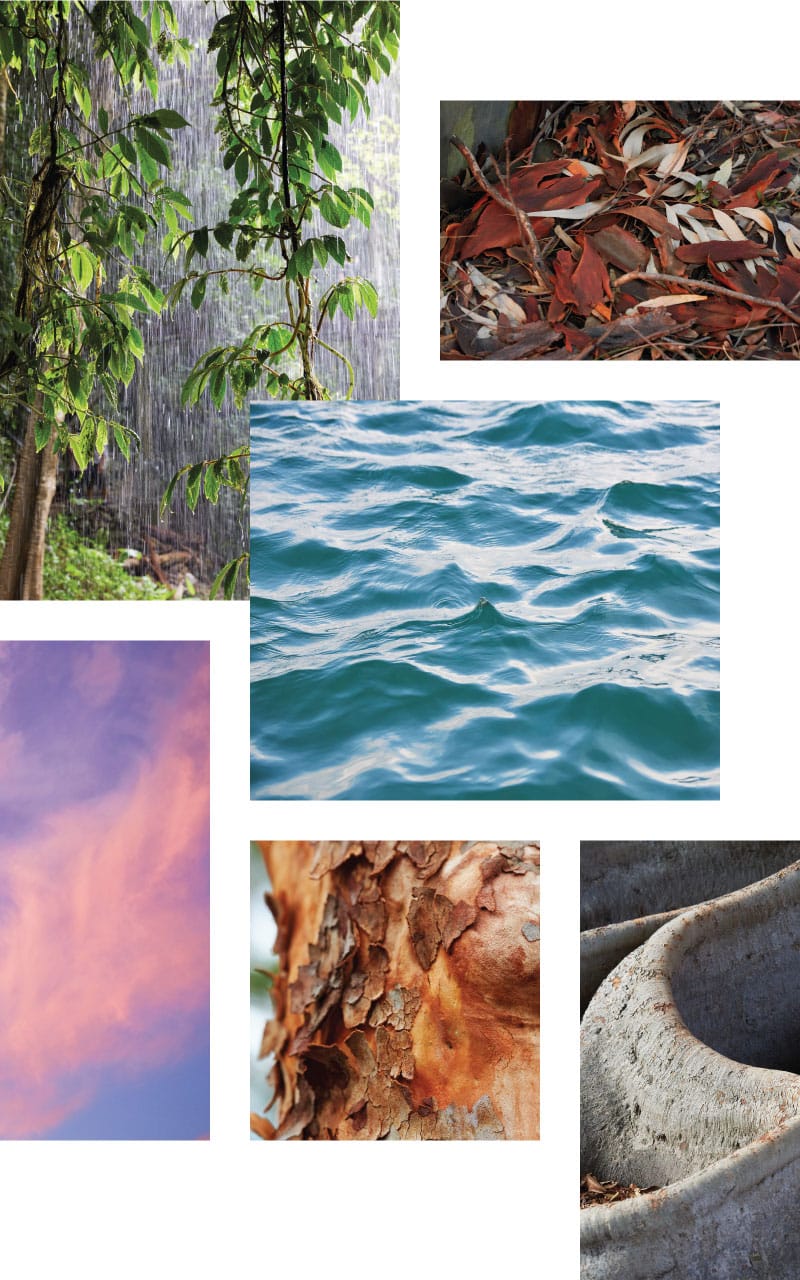
Our strategic issues
Our strategic issues
Looking Ahead seeks to respond to a number of local, national and global strategic issues and opportunities.
- Our communities want us to provide leadership on issues that impact on our regions, such as entrenched inequality, a transitioning economy, balancing land use and climate change.
- Our communities increasingly expect the University of Newcastle to take a leadership position on environmental sustainability.
- Competition for students, research funding and industry partnerships is increasing both within the sector and beyond from non-traditional competitors.
- Economic power continues to shift from West to East, and education and research are increasingly globalised.
- Digital and micro-credential disruption of the higher education sector is accelerating.
- Addressing global challenges and opportunities such as delivering upon the United Nations Sustainable Development Goals.
- Student expectations are pivoting toward personalised experience, flexible study and developing practical skills for a workforce in which they will have multiple careers.
- Understanding the Federal and State policy horizon is key to leveraging opportunities.
Our vision and values
Our vision to be world-leading university for our regions is underpinned by our four values; excellence, equity, engagement and sustainability.
Our
values
Our values set the standards that we expect, encourage and nurture in our staff and students. They guide our decision making and position us to achieve our purpose.
Excellence
We pursue the exceptional and strive for innovation in our teaching, research and operating environment.
Equity
We are committed to widening participation, promoting diversity and fairness, overcoming injustice and increasing success for all.
Engagement
We are deeply connected to the challenges and opportunities in our regions and beyond.
Sustainability
We are ethically minded and prioritise responsible management of our environment and financial resources.
Shaping our 2025 goals
We will hold ourselves to account on our values, to ensure that we are genuinely living them.
Our 2025 goals for each of our strategic initiatives have been determined through the lens of our values.
Aligned with the United Nations Sustainable Development Goals
Traditional Custodians
The University of Newcastle acknowledges the traditional custodians of the lands within our footprint areas: Awabakal Nation, Darkinjung Nation, Biripai Nation, Worimi Nation, Wonnarua Nation and Eora Nation. We also pay respect to the wisdom of our Elders past and present.
The University of Newcastle acknowledges the traditional custodians of the lands within our footprint areas: Awabakal, Darkinjung, Biripai, Worimi, Wonnarua, and Eora Nations. We also pay respect to the wisdom of our Elders past and present.

